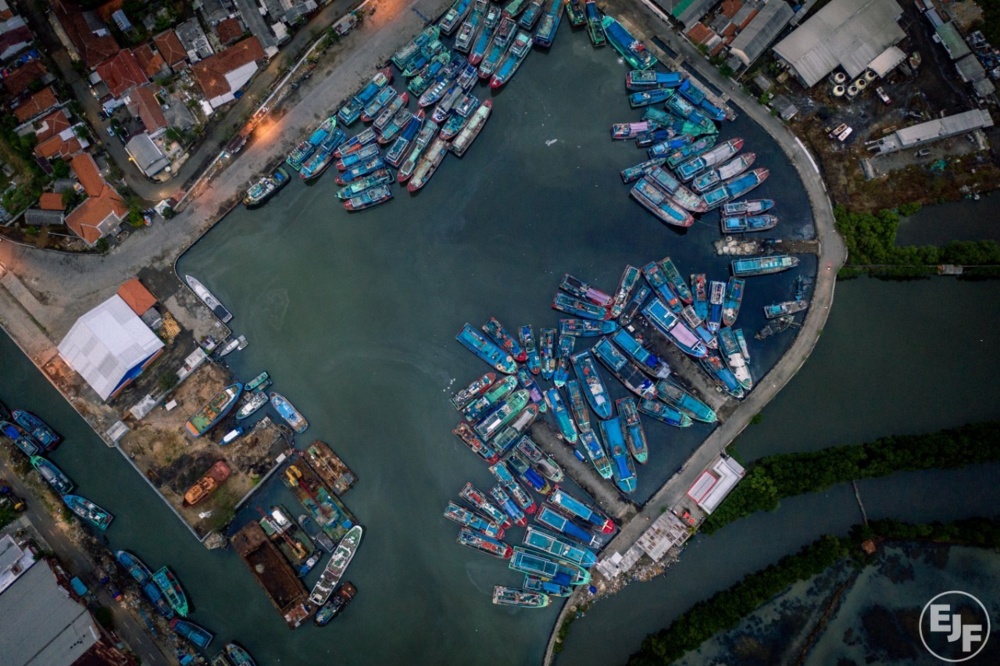
EU lifts warning over Taiwan’s illegal fishing but reforms must continue
The European Commission has announced that it will be lifting the ‘yellow card’ warning it placed on Taiwan’s seafood industry for illegal fishing. The Environmental Justice Foundation (EJF) cautions that although important legislation has been passed, enforcement is now critical, as its investigations have continued to reveal illegal fishing and associated human rights abuses aboard Taiwan's distant water tuna fleet.
The Commission’s yellow card is a formal warning for the fishing industry that can lead to import bans to the EU. This is a serious issue in Taiwan, where the export value of the industry over recent years has ranged between US$1.6 billion to US$2 billion.
Taiwan has taken steps to improve its legislation and has sanctioned several vessels, and the lifting of the EU warning is testament to that. However, EJF investigations continue to reveal widespread illegal fishing by Taiwan's distant water tuna fleet that does not comply with these new laws. This shows clearly that better enforcement of the new legislation is crucial, using methods such as improved surveillance with onboard cameras and creating a fully transparent system where abuses can be easily detected and acted against, the NGO says.
That the EU does not consider human rights issues as part of its carding decision is also critical. EJF has identified multiple cases of violent human rights abuses in the Taiwanese fishing fleet and, crucially, much more action is still needed to eradicate these. Products from the Taiwanese fleet, caught on boats where crew are victim to abuses, are still entering global seafood markets including the EU and USA.
In 2018, crew aboard the Taiwanese vessel Fuh Sheng No 11 told EJF of beatings from the captain and being given only three hours to sleep. Salaries were below the Taiwanese minimum wage, and even then, deductions were made; one crew member reported that because of deductions he received a monthly salary of just US$50 for the first five months.
After the investigation, the Fuh Sheng No. 11 was sanctioned, demonstrating that Taiwan is ready to put new measures into practice, but more is needed to ensure that these violations never happen in the first place.
An investigation in late 2018 revealed that crew on a further five tuna longliners were being ordered to remove shark fins and throw the bodies overboard – a practice that is banned by Taiwan. Some of the vessels also illegally caught and killed dolphins, which are protected under Taiwanese law.
Taiwan’s new laws need full implementation and rigorous enforcement, recognising that any law is, ultimately, only as good as its enforcement. Likewise, transparency must be improved as a simple, cost-effective way to combat both illegal practices and human rights abuses in the fishing industry. Taiwan has made some progress to allow public scrutiny of its fisheries, but it needs to do more to implement EJF's Charter for Transparency and bring its fishing fleet out of the shadows.
Taiwan has started on the journey to sustainable and ethical fishing, but it has by no means reached the destination.
SIGN UP FOR OUR EMAILS AND STAY UP TO DATE WITH EJF

